- Home
- Claire North
The End of the Day Page 8
The End of the Day Read online
Page 8
Chapter 28
Some time after the ice …
… in a land of rolling hills …
… in a land of dark and Satanic mills …
It was raining when the Harbinger of Death took the 176 bus to the Longview Estate. It was raining when he got on the bus, pressed in amongst steaming bodies and crumpled shopping bags, and it was raining when he got off, scurrying from the bus shelter to the doorway of a second-hand mattress shop, umbrella flapping in the wind, struggling to work out which way to go now.
He knew the area around Elephant and Castle perfectly well—no one could live long in south London without at some point being swept up into the heaving roundabouts and belching one-way systems of the arterial junction, squatting in a pinch of land hemmed in to the north, east and west by the curve of the River Thames, spewing out bus routes and harried commuters to all corners of the city. Once, when he was new to London, he’d attended a very loud, very drunken birthday party at a music venue nearby. The lighting had been blackness sliced through with strobing green lasers; the floor had bounced as he walked on it; he was bullied to impress a girl, mixing drinks, and was profoundly and violently sick outside the venue door, and was denied readmittance and had to go home by himself. No one had really noticed his absence, and over the years he’d lost touch with that circle of friends.
Now he was back, a bright orange toolkit in a rugged plastic box held in one hand, complete with multi-head screwdriver, tape measure, claw hammer and adjustable spanner. Over his other shoulder he carried a satchel, and as he tried to balance these two objects with the umbrella clasped in his right hand, one slipped, the other bumped, and he cursed under his breath.
The sound of his muttering was swept away by the wail of a police siren, the swish of tyres through bursting puddles, the rattling of a drill on a new luxury penthouse estate development refurbishment village project zone of …
… a new building of some sort; he didn’t bother to look too closely at the billboards.
Finally, by putting the toolbox on the ground, slinging the strap of his satchel across his whole body rather than just over one shoulder and negotiating the angle of his umbrella so that the flat top pressed into the wind, he was able to extract his mobile phone, check the map, and follow it into the muddle of streets that divided Southwark from Kennington.
Walking away from the traffic, quieter back roads, he felt a little calmer. These streets had always seemed to him like a proper part of London, more than the tourist walks of the West End, the crowds along the Thames, the queues at the Tower. Here, between the bus routes, white terraced almshouses with little gardens at front and back met fat Victorian homes, now converted into three flats apiece. Red-brick 1950s council estates squatted in between, built around eccentric courtyards during an era when everyone knew that rocket packs were only a generation away, and the great men of the time still remembered their excitement at the day they turned a tap on and hot water came out.
The Longview Estate was the collective name for five of these blocks, arranged by a hobgoblin around triangles of green, intersecting walkways designed to create the sense of a little world within its walls, a shelter for the kids, a community centre in the middle of it, now nothing more than a room with a broken kettle and bouncing floorboards.
Most of the estate was boarded up. Metal shutters along the ground floor; no-entry signs across the walkways. The first of the diggers were waiting round the side of one of the blocks; buddleia grew untrimmed from the roof. Charlie was turned around by a graffittied-over map by the entrance to the estate, running his finger along the sign, trying to find his way to one door, one building. He ended up looking at evens, not odds, and backtracked through a cracked car park, broken crates stacked in a corner, past a smashed CCTV camera and an empty stretch of grey wall where someone had written in block capitals:
NO WAY BACK
The paint had run, making the letters weep. A beer can bounced down the empty grey stairs; plane trees shifted in the cold breeze.
He climbed up, followed a walkway along, came to number 17, shifted his bag on his shoulder, his umbrella in his hand, and knocked three times.
Chapter 29
She had said, “I collect snow globes. You’ll probably want to do something similar.”
He’d replied instantly, knowing it was true, “I like music.”
“Good! That’s excellent. I see why she likes you so much.”
“Tell me,” Charlie mused, “you were the Harbinger of Death so long, and now this, here, retirement … What are you going to do?”
A question beneath the question—what is there that you possibly could do, having already done so much?
She considered a while, then ticked the points off her fingers. “Bake my own bread, read, go bouldering on a Saturday with the women’s club, and learn to scuba dive. Also, it’s really time that I gave my wardrobe a bit of an overhaul.”
After Greenland, he’d written an email. He wanted to explain, thought she might understand.
I felt nothing. I felt the world was ending. I felt on fire. I felt frozen to the bone. I felt as if nothing had any meaning. I felt as if I were witnessing the most important act of man this world had ever seen.
She’d taken her time to reply, busy, perhaps, with her social activities, the power-walking group, the local book club, the hunt for the perfect ingredients for the perfect meal, now that she had time to do such things. Eventually she’d answered.
Sounds like you’re settling in perfectly.
Chapter 30
September rain, and the Harbinger of Death stood outside a heavy wooden door covered over with a secure metal frame on a council estate in Kennington, and knocked three times.
Silence inside, silence on the estate.
He knocked again.
Nothing stirred.
He went to the window by the door, peered in through a metal grille, saw only chain curtain and the misty hint of cooker and fridge beyond.
Went back to the door, knocked three times.
A voice, female, loud, called from within, “Fuck off!”
Charlie hesitated. In the course of his career, this was not an entirely unexpected reply, but in this case he hadn’t even begun the inciting conversation.
“Ms. Young? Ms. Agnes Young?”
“Fuck off!”
“Ms. Young, my name is Charlie, I’m not from the council.”
“Fuck! Off!”
“Ms. Young, I’m the Harbinger of Death.”
“Oh you just fuck right off out …” Her words vanished into quieter muttering, then re-emerged again. “Fuck! Off! Don’t you get me?!”
Charlie swallowed, aware now that this was risking becoming a scene, and he never enjoyed such things. He glanced up and down the walkway, heard no one coming, saw no faces peeking out to examine him, so swallowed again and raised his voice a little. “Ms. Young, I’ve been sent by Death to offer his respects and good wishes to you and your grandfather at this time. If you do not wish to see me, I entirely understand that view and will leave the toolkit outside the door so that …”
A chain was pulled off the door in front of him. A lock turned, followed by another. The wooden door was flung back, and there, five foot two of fury in pink tracksuit bottoms and a grey hoodie, fluffy vanilla slippers on her feet and a beehive on her head, was Agnes Young. Her skin was cocoa-bean brown, a pale line of acne across her forehead and down her chin. Her hands were small where they ground into her hips, her hips were wide as she filled the doorway, daring anyone to enter her kingdom. The smell of old cigarettes wafted out past her head, its shape lost beneath the explosion of jet-black lion-mane hair, slicked back from her forehead so tightly it shone and then permitted to erupt like a volcano at the top of her skull. She glowered at Charlie with huge brown eyes set above a small, flat nose, and snarled, “Are you taking the fucking piss?”
“No,” he replied, resisting the urge to back away from the force of this girl’s gla
re. “My name’s Charlie, I’m the Harbinger of Death, I’m—”
“He’s not fucking dying, he’s not fucking dying, so you’d better be taking the fucking piss, otherwise you’ll have a fucking problem, do you get me?”
Charlie hesitated, licking his lips, trying to find measured words. Rainwater flowed from a pipe above his head, splattering down onto the concrete near his feet, soaking the ankle of his left trouser leg and threatening to seep into his socks. “Ms. Young,” he said at last, “I am sent sometimes as a warning and sometimes as a courtesy, and my presence need not be about the death of an individual but rather—”
“You here for the estate? Too late—they’re all fucking gone. It’s fucking over but we’re not moving, you hear? You go tell your boss, we’re not fucking going anywhere.”
The Harbinger of Death stood, heels together, back straight, and wondered if this was how the last-standing pillars of coastal chalk felt as the angry sea battered their bases. In the battle between the girl’s anger and his professional cool, there seemed to be little doubt as to who would win.
Then an older voice, warm as flaky pastry from the oven, called out from behind her, and it said, “Agnes, let the man in, will you?”
In another land …
… before the razor-wire fence …
… the Harbinger of Famine stood before the loudspeaker that had been inexplicably shoved into her face and exclaimed at the panting, furious, fuming man who wielded it, “Yes, but surely genetic manipulation actually began with Mendel and the peas …?”
On the edge of the sand …
… the Harbinger of War tugged thoughtfully on the end of her nose, disguising her surprise before murmuring, “How much again per barrel?”
Beneath the white lights of the laboratory …
… the Harbinger of Pestilence raised his hands defensively and exclaimed, “No thank you! I know it’s sealed properly, but I’m still not going to be the man who drops it, if it’s all the same with you!”
In a council block in Kennington …
… the Harbinger of Death sat on a tatty brown sofa in a tatty brown room, the floor stepping-stoned with brown cardboard boxes full of ancient brown papers, while a man with short silver hair on a face almost ebony black, wearing a dark blue jumper and brown corduroy trousers, blew steam off the top of a mug of tea and said, “Have you had to come far today, son?”
“No, sir,” replied Charlie, as Agnes pushed a Liverpool FC mug into his hands, the handle long since lost to the gods of the kitchen. He held it tight, letting the heat settle through his soggy fingers, while old Jeremiah Young examined the toolkit Charlie had left on the seat next to him. “I live in London.”
“Ah—that’s good. Does Death have Harbingers in every country, or do you travel a lot?”
“I travel.”
“You enjoy it? You must spend a lot of time at airports. Unless you have a fiery steed, that is.”
“No steed. I … Yes, I enjoy it. Travel is better when you meet people, see the way they are living, isn’t it?”
“Even if their lives are ending?”
“Sometimes … sometimes yes. Sometimes it’s for the best …” Charlie’s voice trailed away; he gestured limply with one hand.
“You don’t see the end, is that it? Just the beginning of the end?”
Jeremiah smiled weakly as Agnes perched on the edge of the couch next to him, the toolkit forcing her to sit away from the back, body angled so her knees pointed towards her grandfather, her shoulder turned hard against Charlie. She didn’t look at the Harbinger, and he still felt the urge to look away, study the threadbare carpet beneath his feet, torn so thin in one corner that you could see the splintered floorboards below.
The old man went on, without malice, chuckling occasionally at the memories that rose, “I lived here for thirty-eight years. Were you born thirty-eight years ago, Charlie?”
“No, sir.”
“Thirty-eight years; when Thatcher was in power, they had a right-to-buy scheme, and I bought, sure I did, and so did any others who could afford to. Didn’t feel much anxiety then, thought I was doing the right thing for my kids, but Agnes here …”
“Fuck off, Grandad,” she retorted, without malice.
“… can’t afford London rents. Where was that place you found in the end?”
“Harpenden.”
“Harpenden—that’s the nearest place she could afford, but what with the train tickets costing so much, it worked out much the same. And a flat like this, to buy—it’d take you how long to save up for it, on your salary?”
“Thirty-seven years.”
“Thirty-seven years. Of course they’re not just evicting us—they’re gonna buy us out. I’ve been offered two hundred and fifteen thousand for this place. I said, two hundred and fifteen thousand, there’s nothing in all of London you can buy that cheap, and they said that’s the going market rate, but I had experts round, estate agents and surveyors …”
“Surveyors,” agreed Agnes, distantly chiming in with a story she’d heard told many times, a tale now settled deep in her soul.
“… and they said I was being robbed, and that when they tear this place down like they’re gonna, they’ll be building one-bedroom flats that’ll sell for at least half a million. Five hundred thousand pounds, can you imagine it? For one bedroom—and that’s the affordable housing; over there, on the other side, they’re building another block, of luxury apartments, once they’ve taken the building down, but they’ll be gated off from the affordable …”
“Affordable,” snarled Agnes, face twitching into something tight as her fingers idly traced the shape of the hammer in the box.
“… apartments so that the luxury apartment blocks don’t have to feel threatened by all the people who can only get a half-million-pound mortgage for a one-bedroom place, and I said …”
“Fuck. Them.”
“Agnes … I said, I’ve been here thirty-eight years and I know the place needs work, but we can do it, it was only built sixty years ago and there are buildings still standing that are centuries old, and they said …”
“They’re being paid,” Agnes snapped, head rising to glare at the wall to the right of the Harbinger’s head. “The council sold the estate for forty-five million. Do you know how much money they’ve spent getting all of us out? Forty-nine million. That’s their big money-saving scheme, sell the place and spend our money, our taxes, so that some rich fucker can build some rich fucking tower block for rich fucking …”
“Agnes …”
“They said we could be easily rehoused. They sent me a picture, isn’t this fucking lovely? You know where it was? Bracknell. I don’t even know where fucking Bracknell is, but I looked it up on the map, and it isn’t even in the fucking city. You need like, a car to get there, just to drive around, and there’s nothing, and I said look, I work in a shop on Tottenham Court Road, I can’t live in fucking Bracknell, and they said there are trains every half-hour to Waterloo and I was just like … I was like …”
She was crying. Back straight, fingers locked on her lap, she was crying. Her grandfather held her hand, and she held his, and the two of them stared into visions only they could see, as tea cooled and the silence shrouded the world beyond their window. Then finally Jeremiah raised his head and looked into Charlie’s eyes and said, “Does Death come for an idea? Does Death come for the soul of a thing?”
“Yes,” Charlie replied, unable to tear his eyes away from the silent, glaring, weeping girl. “Yes, he does.”
“Good. Let him come. I would like to talk with him, I think, about some past and future things.”
An hour later, the tea drained from its stained mug, Charlie left them, the old man and the girl, and walked back out into the fading rain, head low, feet heavy. He wondered if it was the use of English that made this particular job weigh upon him—in other lands, speaking other tongues, there was something of a barrier raised between himself and his duties, a linguistic w
all that made sadness, sorrow, regret, despair into concepts that were expressed phonetically rather than in any emotional way. Speaking his native tongue, in a city he had slowly grown to consider his own, these words had a meaning that needed no translation.
He walked back to Dulwich through the fading light, the streets black mirrors beneath his feet, the yellow lamps coming on all around, the commuters dragging their shopping bags and pouring, sticky-armed and red-faced, from the hollow mouth of the Underground as he walked by.
In the evening, candles burning between them—not because it was special, just because it was nice—Emmi said, “Do you feel English?”
“No. I don’t think so. What does English feel like?”
“If you have to go to visit someone in England, see something who’s dying …”
“Death is Death.”
“You say that a lot.”
“Sorry, I didn’t mean … It’s … Everyone lives and everyone dies. The world changes, and it’s the world, and I will live and I will die and … Do you want to talk about something else?”
“Death doesn’t care what nationality you are?”
“No.”
“So you don’t feel English.”
“I feel … alive. Sometimes being alive means you remember what it feels like for everyone else to be alive too, I guess.”
“More fish?”
“Yes please.”
“More peas?”
“Definitely.”
“There’s custard tarts for later.”
“You might have to carry me to bed.”
And the next morning, he got an email from Maureen in the Milton Keynes office, who said he should probably turn the radio on, and he did, and he heard Agnes’s voice ringing out across the airwaves of the local station as she explained, “We’ll never stop fighting, never. We’ll never give in. It’s not about the money, it’s not about the council or the building—it’s about justice. It’s about injustice. It’s about us standing up for our homes and our lives. Yesterday the Harbinger of Death came to see my grandad, and he told him to his face, go back to your master, tell him that if he wants to find me, he’ll have to come to the Longview himself.”

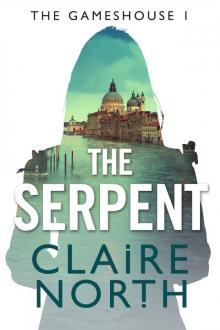 Gamehouse 01 - The Serpent
Gamehouse 01 - The Serpent The Master
The Master Gamehouse 03 - The Master
Gamehouse 03 - The Master The Thief
The Thief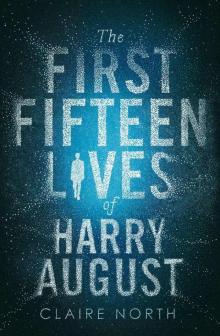 The First Fifteen Lives of Harry August
The First Fifteen Lives of Harry August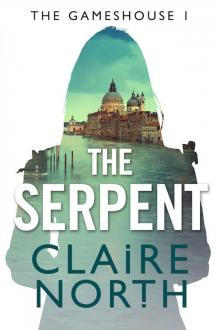 The Serpent
The Serpent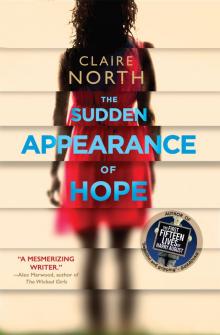 The Sudden Appearance of Hope
The Sudden Appearance of Hope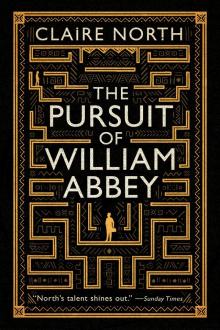 The Pursuit of William Abbey
The Pursuit of William Abbey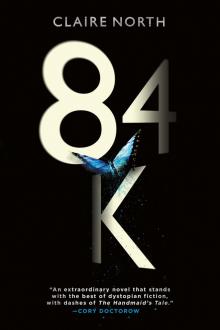 84k
84k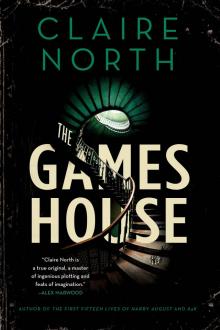 The Gameshouse
The Gameshouse Touch
Touch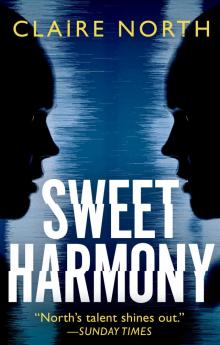 Sweet Harmony
Sweet Harmony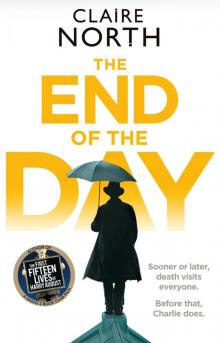 The End of the Day
The End of the Day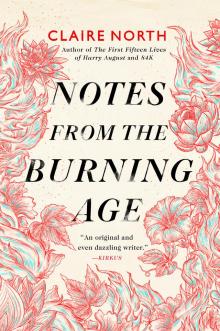 Notes from the Burning Age
Notes from the Burning Age